Read carefully scanf(3). Notice that with gcc -m32 you have sizeof(userInput) equal to 4 (the size of all pointers is the same; without the -m32 it would be 8). So if the user is typing something like working (or any input of four characters or more, not just one letter like a), you have undefined behavior (because of a buffer overflow) and that is really bad. You probably should consider using getline(3) instead (or perhaps even readline(3)), e.g.
char* userInput=NULL;
size_t sizeInput= 0;
printf("Commands:\n");
/// put your other printfs here, then
ssize_t lengthInput = getline(&userInput, &sizeInput, stdin);
if (lengthInput < 0 || userInput==NULL)
{ perror("input error"); exit(EXIT_NULL); };
Now you have the entire typed line in userInput (including the terminating newline) and you know that its length is lengthInput. You can parse that line, perhaps using sscanf(3) (hint: use its return count, and consider using %n) or just using other techniques (some strcmp, or strtok(3)...). When done, you should free(userInput).
Notice that scanf (or sscanf) do not allocate any memory for parsed data, unless you use %ms (which is probably POSIX specific). With %s it always expecting some fixed length buffer, and for a array buffer declared char buf[64]; you'll better give the size with %63s; BTW, you should always test the result count of scanf. So you might code (after the above)
char nambuf[64];
if (sscanf(userInput, "a %63s", nambuf)==1) {
// use nambuf to add it
}
else if (sscanf(userInput, "r %63s", nambuf)==1) {
// use nambuf to remove it
}
(but the above is a bit silly, we read an arbitrary sized line but process nambuf of at most 63 bytes). You could just use scanf like if (scanf("a %63s", nambuf)==1) without needing any userInput.
Alternatively, you could use the Linux specific %as or better the POSIX specific %ms like:
char* nameptr=NULL;
if (scanf("a %ms", &nameptr)==1) {
then that successful scanf would have malloc-ed and filled nameptr and you should later free(nameptr). If you want to accept only lowercase letters consider coding something like if (scanf("a %m[a-z]", &nameptr)==1) etc...
